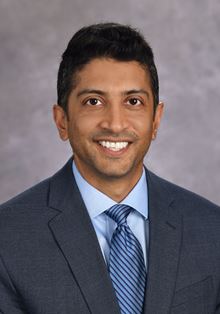361-370 of 1691 Results Found
Condition
Uniparental Disomy: Prader-Willi Syndrome and Angelman Syndrome What is uniparental disomy? Chromosome pairs affect how our body works. Normally, a baby gets 1 copy of each chromosome pair from each parent. This means 1 copy from the genetic mother, and the other copy from the
Conditions We Treat
The OI team at Phoenix Children’s diagnoses and treats a wide range of common and more complex conditions affecting children and teens. These include: Fibrous dysplasia – A rare bone disorder that causes certain bones to be replaced by abnormal scar-like (fibrous) connective
Condition
Turner Syndrome (Monosomy X) in Children What is Turner syndrome (TS) in children? Turner syndrome (TS) is a genetic disorder that occurs in girls. It causes many traits and problems. Girls with TS are shorter than most girls. They don’t go through normal puberty as they grow
Condition
Hereditary Hemochromatosis What is hereditary hemochromatosis? Hereditary hemochromatosis is a genetic blood disorder that causes your body to absorb too much iron from the food you eat. Iron is a mineral found in many foods. But too much iron is toxic to your body. The excess
Conditions We Treat
Cancer Predisposition Syndromes: Like basal cell nevus syndrome, xeroderma pigmentosum, PTEN hamartoma tumor syndrome Congenital Ichthyosis: A rare group of genetic disorders with symptoms ranging from pruritus, skin fragility, scaling and inability to sweat Connective Tissue

Condition
Polycystic Kidney Disease What is polycystic kidney disease (PKD)? Polycystic kidney disease (PKD) is a rare genetic disorder. It causes many cysts filled with fluid to grow in the kidneys. PKD cysts can impair how the kidneys work. It can lead to kidney failure. PKD is the
Condition
Sickle Cell Disease in Children What is sickle cell disease in children? Sickle cell disease (SCD) is a blood disorder that a child is born with. It's passed down through a parent’s genes. Children with SCD make an abnormal type of hemoglobin. This is the protein in red blood
Condition
Allergies in Children What are allergies in children? Allergies are problems of the immune system. Most allergic reactions happen when the immune system reacts to a “false alarm.” Normally, the human body defends itself against harmful things, such as viruses or bacteria. But
Condition
Anemia in Children What is anemia in children? Anemia is a common problem in children. About 20% of children in the U.S. will be diagnosed with anemia at some point. A child who has anemia doesn't have enough red blood cells or hemoglobin. Hemoglobin is a type of protein that
